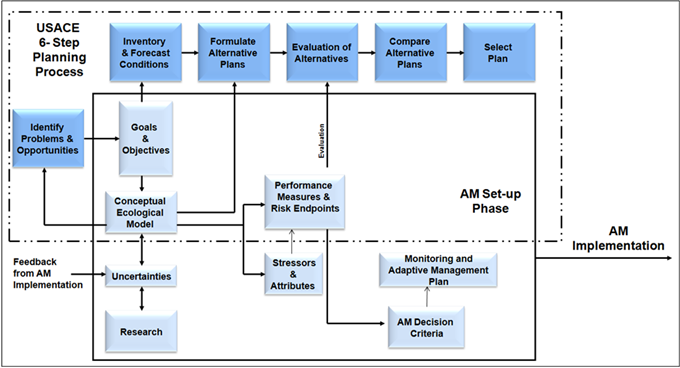
 |
|||
| Home | About EBA | Technical Documents | Tools | Case Studies | Contact Us |
|
||||||||||||||||
Adaptive Management
Adaptive Management is a process wherein management actions can be changed in response to monitored system response, so as to maximize restoration efficacy or achieve a desired ecological state. Adaptive management allows projects to proceed in the face of uncertainty, accelerating project implementation and the realization of benefits while avoiding unneeded study. Since it eliminates some undesirable outcomes, adaptive management also increases the likelihood that restoration projects will achieve full success. In moving from the conceptual to actual implementation, it becomes apparent that adaptive management has a significant influence on the planning process. It forces planners to confront the possibilities of adverse outcomes and think about how alternatives could be modified in order to help ensure project success. The process of addressing these factors can be as valuable as adaptive management itself. Adaptive management can be described in terms of a series of eight Steps, and is guided by a set of Principles that help improve the likelihood of project success. The figure below shows how the development of an adaptive management plan relates to the Corps’ six-step planning process. Adaptive management is useful only when three criteria are met; in other circumstances projects should simply be monitored for success. Adaptive management relies upon monitoring of one or more metrics related to the project objectives, and the implementation of management actions that are triggered by decision criteria and risk endpoints. The development of an adaptive management plan is required as part of the feasibility study for all ecosystem restoration projects. 
Related Resources
Foundation Reading Case Studies for Monitoring & Adaptive Management Other Products Tools Webinars |
||||||||||||||||
|
Updated: July 2024 |
||||||||||||||||